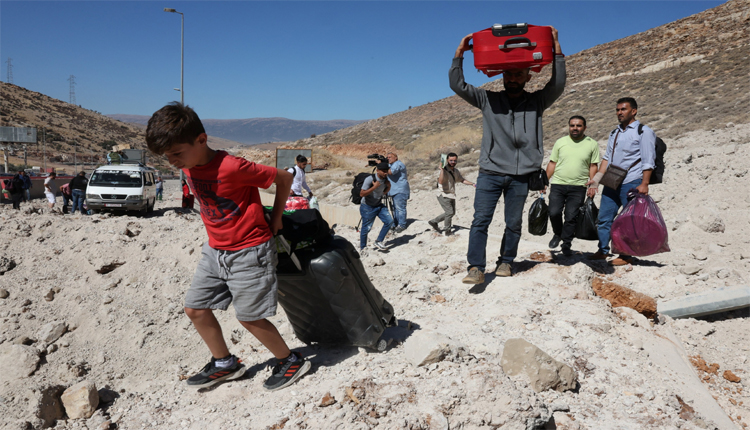Middle East: The volatile situation in the Middle East continues to deteriorate as Israel intensifies its military actions against Hezbollah, while Iran escalates its rhetoric and missile attacks against the Israeli state. The region is witnessing a significant uptick in hostilities, raising alarms of a broader conflict.
Following recent attacks by Hamas, Israel has now turned its focus towards Hezbollah, the Iran-backed militant group based in Lebanon. In a series of retaliatory strikes, the Israeli military has launched numerous airstrikes targeting Hezbollah positions, aiming to dismantle the group’s infrastructure and command capabilities. These actions come in the wake of Iran’s recent missile assaults on Israeli territories, further heightening tensions between the two nations.
Iranian Supreme Leader Ali Khamenei has made provocative statements declaring the end of Israel, intensifying fears of an all-out regional war. In response to Iran’s missile attacks, the Israeli government has vowed unequivocal retaliation. “We will avenge every attack with the full force of our military capabilities,” an Israeli spokesperson declared, underscoring the nation’s commitment to defending its sovereignty.
The Iranian Revolutionary Guard has also issued stern warnings to Israel via social media platforms, stating, “If provoked us again, we will give a response that would not have been imagined by Iran.” These threats signal a potential escalation in military actions, as Iran positions itself firmly against any further Israeli aggression.
In a recent development, Iran’s Foreign Minister Abbas Araghchi addressed reporters in Damascus, Syria, emphasizing Iran’s unwavering stance against Israel. “Our response to any attack by Israel is absolutely clear,” Araghchi asserted. “Iran will take action on every provocation by Israel, and our response will be stronger than before.” His comments were made during a meeting with top Syrian officials, including President Bashar al-Assad, highlighting the regional alliances that underpin Iran’s strategic positioning.
Araghchi’s visit to Damascus marks the second leg of his regional tour, aimed at consolidating support amidst ongoing conflicts. “Amid continuous Israeli attacks, a ceasefire has been initiated in Lebanon and Gaza,” he noted, referring to the fragile truces that have been intermittently brokered to prevent further bloodshed. However, the persistent aggression from both sides threatens to unravel these tentative peace efforts.
The international community remains deeply concerned about the spiraling violence, urging all parties to exercise restraint and engage in dialogue to de-escalate tensions. Analysts warn that without significant diplomatic intervention, the Middle East could descend into a full-scale war, with devastating consequences for regional and global stability.
As the conflict intensifies, the lives of countless civilians remain at risk, caught in the crossfire of geopolitical rivalries and militant ambitions. The world watches anxiously, hoping for a resolution that can restore peace and prevent further loss of life in this already troubled region.



Comments are closed.